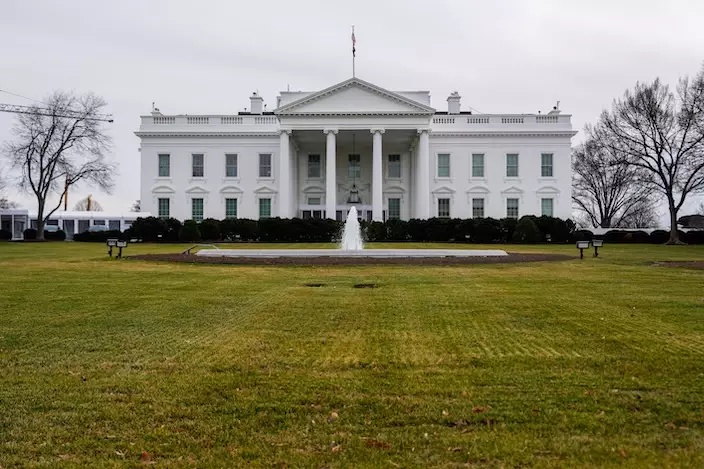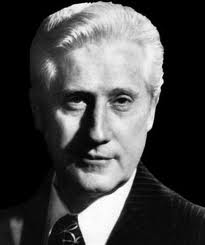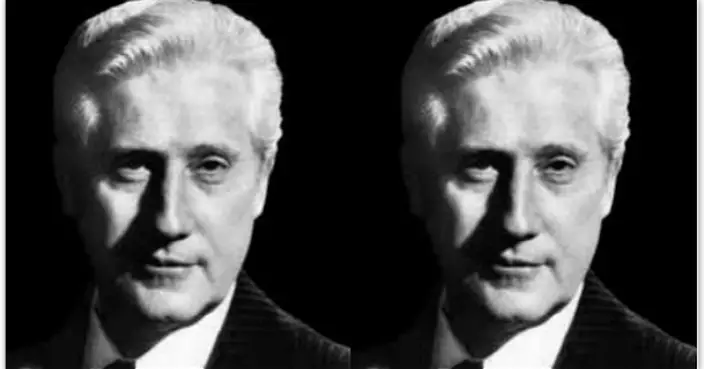After being pushed out of the White House, Zelensky sought comfort in the UK, where British Prime Minister Keir Starmer hosted a European leaders' summit to discuss the Russia-Ukraine conflict and Ukraine's security. However, on the same day as the London summit, signals emerged in the U.S. about intentions to replace Zelensky.
On March 2, local time, European leaders gathered in London for a summit on the Ukraine crisis. Afterward, Prime Minister Starmer stated that the parties reached a four-point consensus: to continue military aid to Ukraine, involve Kyiv in peace negotiations, prevent future Russian invasions, and form an alliance to ensure Ukraine's peace.
Meanwhile, on the same day, Trump National Security Adviser Mike Waltz suggested in an interview that the U.S. hopes for a permanent peace between Russia and Ukraine but implied that Zelensky must step down. When asked if Trump wanted Zelensky to resign, O'Brien told CNN, "We need a (Ukrainian) leader that can deal with us, eventually deal with the Russians and end this war." He added, "And if it becomes apparent that President Zelensky's either personal motivations or political motivations are divergent from ending the fighting in this country, then I think we have a real issue on our hands."
This straightforward statement was interpreted as the U.S. seeking a new proxy to replace Zelensky.
House Speaker Mike Johnson also stated that if Zelensky does not meet U.S. demands, Ukraine might need a new leader. He told NBC, "Something has to change. Either (Zelensky) needs to come to his senses and come back to the table in gratitude, or someone else will have to lead the country to do that."
US Secretary of State Marco Rubio was less direct. He told ABC that since the argument at the White House on February 28, he had not spoken with Zelensky or the Ukrainian Foreign Minister. Rubio said, " We will be ready to re-engage when they are ready to make peace,."
In other words, the U.S. has historically not tolerated non-compliant regimes or leaders; there are ways to make them suddenly disappear. The four-point consensus proposed by Europe is essentially a desperate attempt to find strategic autonomy between the U.S. and Russia.
Analysts believe that Zelensky's political career is counting down. His tragedy lies in being both a symbolic icon of Western values and a sacrifice of realpolitik. The Trump administration's strategic concept of "land for Russia, resources for the U.S., and debt for Europe" is pushing Ukraine into the depths of a new form of colonialism.
On the other hand, President Trump's demand for NATO countries to increase defense spending to 5% of GDP and his intense conflict with President Zelensky at the White House have caused unease among NATO members.
Former NATO Supreme Allied Commander James Stavridis candidly stated that as U.S. commitment to the transatlantic alliance wavers, NATO could be in its "final days." He speculated that NATO might dissolve and transform into a European Treaty Organization.
Stavridis believes that Trump has driven a wedge deep into NATO's core... and that he has made it clear that he does not want to participate in aiding Ukraine. Stavridis said that now NATO member states do not know whom to support, and people might see the end of NATO and the beginning of what is called a European Treaty Organization.
Deep Throat
** The blog article is the sole responsibility of the author and does not represent the position of our company. **
Trump wasted not one second after US forces grabbed Venezuelan President Nicolás Maduro. He made it clear that he was eyeing the country's oil riches. But here's the catch: America's biggest oil companies aren't biting. Industry analysts confirm what the companies won't say publicly—even if these firms wanted back in, Venezuela's crumbling infrastructure and chaos on the ground mean Trump's fantasy of quick oil profits is far from easy to come true.

Trump promises Big Oil will pour billions into Venezuela. The oil giants say they never got the memo. AP Photo
Minutes after the military operation wrapped, Trump stood at a press conference making promises. Major American oil companies would pour into Venezuela, he declared, investing billions to fix the country's shattered oil infrastructure "and start making money for the country". Meanwhile, he reiterated that the US embargo on all Venezuelan oil remains in full effect.
Those sanctions have crushed Venezuelan exports into paralysis. Documents from Venezuela's state oil company and sources close to the situation confirm storage tanks and floating facilities filled up fast over recent weeks. Multiple oil fields now face forced production cuts.
White House Courts Reluctant Executives
Reuters revealed the Trump administration plans meetings this week with executives from major US oil companies. The agenda: pushing these firms to restore and grow oil production in Venezuela following the military action. The White House sees this as a critical step toward getting American oil giants back into the country to tap the world's largest proven oil reserves.
But Trump's eagerness hasn't translated into corporate enthusiasm. Several major US oil companies are taking a wait-and-see approach, watching Venezuela closely. ExxonMobil, ConocoPhillips, and Chevron all denied any prior communication with the White House about Venezuela. This directly contradicts Trump's claim over the weekend that he had already met with "all" US oil firms both before and after Maduro's capture.
Venezuela sits on roughly 17% of the world's proven oil reserves—first place globally. Yet US sanctions and other pressures have gutted its production capacity. Current output runs around 1 million barrels daily, barely 0.8% of global crude production.

World's largest oil reserves, strangled by US sanctions. Trump's quick-profit scheme hits a hard reality. AP Photo
Only One Company Stays Put
Chevron remains the sole major US oil company still operating Venezuelan fields. The firm has worked in Venezuela for over a century, producing heavy crude that feeds refineries along the Gulf Coast and beyond. A company spokesperson said on the 3rd that the current priority centers on "ensuring employee safety, well-being, and asset integrity," adding they "will continue to operate in accordance with laws and regulations."
ExxonMobil and ConocoPhillips previously invested in Venezuela. In the 1970s, the Venezuelan government nationalized the oil industry, reopened to foreign investment by century's end, then demanded in 2007 that Western companies developing oil fields form joint ventures with Venezuelan firms under Venezuelan control. ExxonMobil and ConocoPhillips pulled out. Neither company has responded to Trump's latest remarks about US capital entering Venezuela.
One oil industry executive told Reuters that companies fear discussing potential Venezuelan business at White House-organized meetings due to antitrust concerns.
Benefits Flow to First Mover
Francisco Monaldi, director of the Latin America Energy Program at Rice University's Baker Institute for Public Policy, expects Chevron would likely benefit first if Venezuela opens oil projects to the US. Other oil companies, he notes, will watch Venezuela's political situation closely and observe the operating environment and contract compliance before making moves.
Mark Christian, business director at an Oklahoma energy consulting firm, lays out the baseline: US companies will only return to Venezuela if they're certain of investment returns and receive at least minimal security guarantees. Lifting sanctions on Venezuela stands as a prerequisite for US companies re-entering that market.
Reality Check on Oil Profits
Even with sanctions lifted, the Trump administration won't find making money from invasion-acquired oil that easy.
Industry insiders admit large-scale restoration of Venezuelan oil production demands years of time and billions in investment, while confronting major obstacles: dilapidated infrastructure, uncertain political prospects, legal risks, and long-term US policy uncertainty.
Peter McNally, global head of industry analysis at Third Bridge, said, "There are still many questions that need to be answered about the state of the Venezuelan oil industry, but it is clear that it will take tens of billions of dollars to turn that industry around." He then added that it could take at least a decade of Western oil majors committing to the country.
Ed Hirs, an energy expert at the University of Houston, pointed to a pattern: US military invasions of other countries in recent years haven't delivered substantial returns to American companies. The history of Iraq and Libya may repeat itself in Venezuela.










